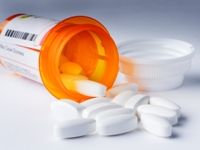Nearly Half of Drug-Treated Major Depressive Disorder Patients are Given Second-Line Therapy Within One Year of Diagnosis
Within a year of their diagnosis, nearly half of all first-line drug-treated MDD patients were also treated with a second-line therapy, a new study finds. Cymbalta leads the market in second-line therapy, used individually or as a combination, and Abilify is the leading atypical antipsychotic.

Decision Resources has released a report concluding that nearly half of first-line drug-treated major depressive disorder (MDD) patients were later treated with second-line therapy within a year of their diagnosis. The study focused on analysis of U.S. longitudinal patient-level claims data.
Generic drugs are more heavily focused on in second-line treatment, but still have a share of the market in later therapy plans. Specifically, Cymbalta was a top-ten product used as either monotherapy or as part of a combination in second-line therapy. This conclusion was consistent with interviewed experts, who considered Cymbalta an option for later therapy in patients who had failed to respond to therapy with selective serotonin reuptake inhibitor (SSRI) drugs. They also considered Cymbalta as an option for patients who were experiencing physical symptoms of depression, such as pain or fatigue.
The researchers also reported that among newly diagnosed patients, bupropion (GlaxoSmithKline/Valeant Pharmaceuticals' Wellbutrin/Wellbutrin SR/Wellbutrin XL, generics) topped the list of all other individual drugs among second- and third-line therapies. This is aligned with its use as a popular drug for patients who do not respond to first-line SSRI or serotonin norepinephrine reuptake inhibitor (SNRI) drugs, or patients who cannot tolerate other first-line antidepressant drugs’ side effects.
Another finding is that atypical antipsychotic drugs have more than 14 percent of the patient share among recently-treated MDD patients. The top drug of this class is Bristol-Myers Squibb/Otsuka Pharmaceutical's Abilify. The advantage of this drug comes from its U.S. approval as an additional treatment for MDD, its lower metabolic side effects when compared to other drugs, its relatively favorable market access, and the perception of psychiatrists as a more-activating side-effect profile (instead of other atypical antipsychotics’ sedative side effects).
"Adding an atypical antipsychotic to an antidepressant for treatment-resistant depression is becoming more common, largely to address the high level of unmet need among patients who fail to respond to early-line MDD treatment," Decision Resources Senior Business Insights Analyst Alana Simorellis, Ph.D., said in a press release. "While only Abilify and Seroquel XR (AstraZeneca's quetiapine XR) are approved as adjunctive therapies for MDD, many other atypical antipsychotics are being used in treatment-resistant patients. Although these latter agents are not FDA-approved for MDD, it appears that physicians are becoming more comfortable using atypical antipsychotics for this indication as a result of the approvals of Abilify and Seroquel XR.”